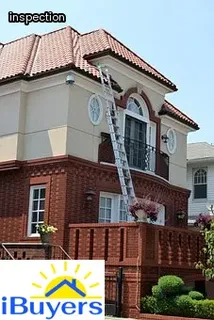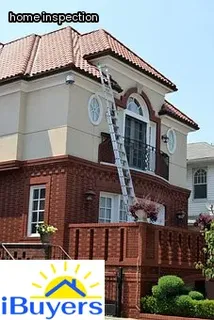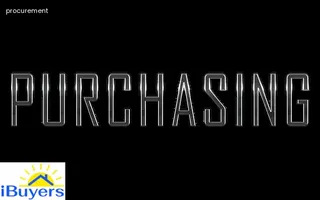Home inspections are an important part of the home-buying process. The purpose of a home inspection is to give buyers a better understanding of the condition of the property they're interested in purchasing.
Home inspections usually include visual inspections of the structure and systems, such as electrical wiring, plumbing, HVAC systems, roofing, and more. Additionally, inspectors may use specialized testing equipment to detect any potential issues that can't be seen with the naked eye.
It is important for buyers to understand what types of items are covered during a home inspection. This includes any visible defects in the construction or functioning of major systems in the house.
Buyers should also be aware that certain items may require additional testing or inspection from a professional contractor or specialist. As far as who pays for a home inspection and appraisal - it's typically up to the buyer to cover these costs unless otherwise stated in an agreement between the buyer and seller.
Additionally, buyers should always check with their local real estate agent or attorney to make sure they understand their rights and responsibilities when it comes to paying for an appraisal and inspection when buying a new home.

Exploring property appraisal fees is an important step for any home buyer or seller. Property appraisal fees are charged to estimate the value of a home and provide insight into any potential repairs needed.
Understanding who pays for home appraisal and inspection can help both buyers and sellers budget for their real estate transactions. Generally, buyers are responsible for these costs as part of the closing costs associated with purchasing a house.
However, in some cases, the seller may cover all or part of the appraisal fee depending on the agreement between parties. Home inspections are also typically paid by the buyer before closing, but they may be included in other fees such as a pest inspection or survey that is already included in the overall cost of purchase.
Knowing who pays for home appraisal and inspection can help buyers and sellers plan ahead so they know what to expect during their real estate transaction. It is also important to understand how appraisals work so buyers and sellers can ensure that they receive accurate estimates of market value when buying or selling a home.
When deciding whether to forgo a home inspection, it is important to consider the pros and cons. On the plus side, omitting an inspection can help save time and money on a real estate transaction.
Furthermore, some buyers may feel comfortable enough with the condition of the house that they don't need to pay for an inspection. On the other hand, foregoing a home inspection could lead to additional costs down the line if there are unexpected repairs or problems that were not identified before purchase.
Additionally, not having an inspection could present a buyer with unknown risks like major structural damage or faulty wiring which could potentially be expensive and dangerous to fix. Making an informed decision about whether or not to have a home inspection is essential for buyers and sellers alike when purchasing or selling a property.

When it comes to buying a home, most mortgage lenders will require an appraisal. An appraisal is an unbiased estimate of the value of a home, which typically takes into account factors such as location, condition, size, age and market trends.
The appraiser's goal is to ensure that the loan amount does not exceed the fair market value of the property. This helps protect both the lender and borrower from excessive debt.
For this reason, most lenders will not approve a loan without first obtaining an appraisal. The cost of an appraisal is usually paid for by the buyer at closing and can range anywhere from $300-$600 depending on the location and size of the property.
It's important for buyers to understand when an appraisal is necessary so they can budget for it in advance and be prepared when purchasing their new home.
When purchasing a home, an appraisal contingency clause is an important factor to consider. This clause stipulates that the buyer is allowed to back out of the purchase contract if the home appraises at less than the sale price.
The buyer will usually be responsible for paying for the appraisal, which can cost between $300 and $400. Home inspections, however, may be paid for by either party as part of the negotiation process.
It's also important to note that not all appraisals are equal - some lenders require a full-blown appraisal while others may only require an automated valuation model. Buyers should research what kind of appraisal their lender requires in order to plan ahead for any additional costs associated with it.
It's also a good idea to understand what is included in the inspection and how much it might cost so that buyers don't end up with any unexpected financial obligations. Ultimately, both buyers and sellers should factor in these costs when considering their overall budget and negotiating terms when buying or selling a home.

When it comes to purchasing a home, one of the biggest expenses that buyers face is closing costs. If the seller agrees to pay for these costs, then buyers should expect a much lower out-of-pocket costs.
This can be beneficial for first-time homebuyers who are trying to save money on their purchase and are already strapped with other upfront expenses. It's important to understand what exactly is included in closing costs so that buyers know what they're getting into when they agree to have the seller pay them.
Generally speaking, closing costs include things like loan origination fees, homeowner's insurance premiums, appraisal fees and inspection fees. Some sellers may choose to offer an allowance towards some of these items instead of covering them completely.
It's important for buyers to ask their real estate agent about everything that is included in the agreement so that there are no surprises at closing time.
Decorative houseplants can be a great way to add visual appeal to any home, while also providing the added benefit of keeping pesky insects away. Houseplants such as lavender, marigolds, and lemongrass are known to naturally repel insects due to their strong scent.
Even though these plants require some upkeep in terms of watering and sunlight exposure, they are generally low maintenance and can last for years with some basic care. Additionally, having these types of plants around the house can help reduce allergy symptoms as well as create a calming atmosphere for you and your family.
This makes decorative insect-repelling houseplants an ideal solution for homeowners looking for a stylish way to keep the bugs at bay.

Navigating low FHA home appraisals can be tricky for home buyers and sellers. An FHA appraisal is an assessment of a home's value, typically conducted by a licensed professional.
When the appraisal comes in lower than the purchase price, it can put a wrench in the buying or selling process. It is important to understand who is responsible for paying for the appraisal when navigating a low FHA appraisal.
Generally, if you are the buyer, you will pay for the appraisal as part of your closing costs; however, there are exceptions where the seller may cover some or all of these costs. Additionally, inspection fees are usually split between both parties and should be discussed prior to signing any contracts.
Home inspections are separate from appraisals and provide buyers with an opportunity to inspect a property before purchase to identify any issues that would lower its value. Buyers should consider hiring a professional inspector who is certified by their state’s licensing agency to ensure they receive accurate information about the home’s condition.
Understanding who pays for appraisals and inspections is essential when navigating through a low FHA appraisal so buyers and sellers can make informed decisions regarding their purchase or sale.
When a home is appraised, the appraiser produces a report that provides an estimated market value for the property. The buyer and seller have to decide who will retain ownership of the actual home appraisal copy.
Generally, the buyer pays for the appraisal and owns the appraisal document. This means that the buyer can keep or release it as they wish.
In some cases, the seller can request a copy of the appraisal at their own expense, but they don't have any legal right to receive one without permission from the buyer. When deciding who should own the home appraisal copy, both parties should consider their best interests as well as any state laws that may apply in their particular situation.
Additionally, it's important for buyers and sellers to understand how appraisals are used throughout the process so they can make an informed decision about who retains ownership of this document.

When a buyer decides to use an FHA loan to purchase a home, the seller of the house may be affected. The FHA requires that the property is appraised and inspected before they will approve the loan.
This cost is usually paid for by the buyer, however, in some cases the seller may agree to pay for all or part of it. An appraisal can cost several hundred dollars and an inspection can run into a few hundred as well.
The fees associated with an FHA mortgage are typically lower than those for a conventional loan but sellers should still be aware that they might be responsible for paying at least some of these costs. Additionally, an FHA loan may take longer to close than other types of loans which could delay a seller’s ability to move on from their current home.
For these reasons, it's important for buyers and sellers alike to understand who pays for what when it comes to appraisal and inspection costs related to an FHA mortgage so that everyone involved is fully informed about their rights and responsibilities.
When purchasing a home, buyers who are using an FHA loan may encounter some resistance from the seller when it comes to making any repairs that are required by the FHA. To ensure that the buyer is not left with a property in need of repair and an inability to finance the loan, there are strategies which can be used to handle seller refusal.
For example, sellers can be asked for a credit at closing to cover the cost of repairs. This will allow the buyer to make their own arrangements for repairs without having to rely on the seller's agreement.
Additionally, buyers can arrange for their own appraiser and inspector in order to get an accurate estimate of any repair costs and negotiate with the seller accordingly. When buying a home, it is important for buyers who are using FHA loans to understand how they can handle seller refusal when it comes to making any required repairs in order to protect themselves financially.

When a home appraisal comes in lower than the asking price, buyers and sellers must analyze their options. It’s important for both parties to understand who pays for a home appraisal and inspection before entering into negotiations.
Buyers should consider if any repairs will increase the appraised value or if they can negotiate a lower purchase price that’s closer to the appraised value. Sellers may need to adjust their pricing expectations based on the appraisal results or make repairs to bring the appraised value closer to the asking price.
Understanding market trends in a specific area and researching comparable homes are good ways of determining a property’s real value. Buyers and sellers can also work together to come up with an agreeable solution that meets both parties' needs.
When assessing bank responsibility for termite damage in foreclosures, it is important to understand the roles of the home buyer, seller and lender. The home buyer will typically be responsible for paying for the appraisal and inspection, which will include a check for any evidence of termites.
Meanwhile, the seller is responsible for disclosing any known damage to the property that could cause issues down the line. If there is evidence of termite damage during an inspection prior to closing on the sale, then it is likely that the lender will be held responsible for repairs or remediation costs due to their role in approving financing.
In some cases, if there is no disclosure of known damage, then both parties may be liable. Understanding who pays for appraisal and inspection can help buyers and sellers understand their potential liabilities related to termite damage in a foreclosure transaction.

When it comes to evaluating a home's roof during an inspection, buyers and sellers should consider the age of the roof, the cost of repairs or replacement, and the possible need for additional maintenance. If a roof is nearing its expected lifespan or has suffered extensive damage due to weather conditions or lack of maintenance, then it may be wise to consider replacing the roof rather than attempting repairs.
It's important to research replacement options that are in your budget and offer quality materials that will stand up against weather elements like hail, wind, rain and snow. Additionally, finding a reliable contractor who can provide an estimate for labor costs associated with installation and removal of the old roofing material can help you make an informed decision about replacement versus repair.
Evaluating replacement options for bad roofs during inspections is critical for ensuring that buyers or sellers are getting the best value for their purchase.
When it comes to purchasing a home, many buyers and sellers are presented with two options: hard money loans or all cash offers. Hard money loans are short-term loans that are secured by the property in question and require higher interest rates than traditional mortgages.
All cash offers often come from investors who can pay for the entire purchase up front. When making a decision between these two options, there are several factors to consider such as closing costs, loan terms, availability of financing, and the current market conditions.
With hard money loans, closing costs will typically be higher due to the increased interest rate charged by the lender. Additionally, loan terms for this type of financing are usually shorter than those associated with traditional mortgages due to the risk associated with them.
In contrast, all cash offers may not be available in certain markets where there is little liquidity or when investors have limited resources. Lastly, it is important to take into consideration current market conditions when deciding between hard money loans and all cash offers as both can be affected by shifting economic trends.

When it comes to who pays for home appraisal and inspection services, it can be confusing for home buyers and sellers. Knowing who is responsible for the cost of inspections and appraisals can make a big difference in the buying or selling process, so it's important to understand exactly who pays in order to avoid any misunderstandings.
Generally speaking, the buyer is responsible for paying all costs associated with the appraisal and inspection of a property. This includes fees paid to a professional home inspector and an independent appraiser.
However, there may be some instances where the seller pays instead. For example, if there are repairs that need to be made prior to closing, the seller might agree to pay for certain inspections in order to move forward with the sale.
Ultimately, the specific terms of payment should be outlined in the purchase agreement between both parties before any work is done on either side.
When buying a home, an inspection can help identify potential issues that may require repair or replacement and give buyers a better understanding of what they’re getting into. However, estimating the cost of repairs can be challenging.
Home buyers should use the knowledge they gain from their home appraisal and inspection to estimate repair costs. Knowing when to hire a professional contractor for certain jobs is key in budgeting for repairs.
Get estimates from multiple contractors and always ask for references and proof of insurance before hiring anyone. Additionally, check with the local municipality for any additional permits or inspections that may be needed to complete specific projects, as this could incur additional fees.
Be sure to get a written quote before agreeing to any work and remember that extra costs such as taxes, permits and labor need to be taken into account when calculating total repair costs.

When searching for a home, buyers and sellers should be aware of the regulations surrounding property accession inspections. It is important to investigate what is necessary to ensure that the appraisal and inspection of the property meets all regulatory guidelines.
Home buyers and sellers should be familiar with their local laws and understand what is required to pass any relevant assessments. Furthermore, both parties should know who will be responsible for paying for the appraisal and inspection costs associated with these regulations, as these fees can add up quickly.
Knowing in advance who will pay for such fees can help to mitigate conflict or misunderstanding during the process of purchasing a home.
When the home appraisal comes back lower than the purchase price, it can be a difficult situation for both home buyers and sellers. Buyers may feel as if they’re overpaying for a property that isn’t worth the amount they’ve agreed to, while sellers may feel like their asking price is too high.
The good news is that there are several options available to both parties in this situation. Home buyers and sellers should consider negotiating with one another to reach an agreement on the final sale price.
Alternatively, buyers may have the option of making up the difference with a larger down payment or smaller loan amount. Finally, buyers could choose to walk away from the deal altogether if they don’t feel comfortable with the terms of purchase.
Ultimately, who pays for home appraisal and inspection costs will depend on how the parties decide to move forward after receiving the lower-than-expected appraisal report.

If the appraisal of a home is higher than the offer, it can be beneficial to both parties. The seller will receive more money for their home, while the buyer may be able to negotiate a lower purchase price.
This could result in a win-win situation for both the buyer and seller. However, it is important to note that buyers should still pay attention to the home's condition and any necessary repairs before making an offer.
Additionally, buyers should keep in mind that they may need to increase their down payment or closing costs if the appraisal comes back higher than expected. Finally, buyers should always ensure they have adequate funds on hand in case any additional expenses occur during the transaction.
By taking these steps, buyers can ensure they are prepared for any unexpected costs that may arise and ultimately protect their financial interests when buying a home.
No, an appraisal and inspection are not the same thing. A home inspection is a physical examination of a property conducted by a professional inspector to identify any potential hazards or problems.
The inspector will look at the property's structure, systems and components, such as the roof, plumbing and electrical systems. An appraisal, on the other hand, is an evaluation of a property's value based on factors like its condition, location, size and features.
While both inspections and appraisals include assessments of a property’s condition, an appraisal does not involve any physical inspection of the structure or systems. Home buyers typically pay for both inspections and appraisals when purchasing a home.
Sellers may also be required to pay for one or both if requested by the buyer. It is important for buyers and sellers to understand the differences between appraisals and inspections in order to make informed decisions about their real estate transactions.
It is normal for home buyers and sellers to pay appraisal fees upfront. This fee is typically paid to the appraiser prior to the inspection taking place.
The purpose of an appraisal is to ensure that the property being purchased or sold is worth its asking price. It is important for both parties involved in a real estate transaction to understand who pays for the home appraisal and inspection.
In most cases, it is customary for the buyer to cover the cost of these services, however, there may be instances where the seller may cover this expense as well. Buyers should always review their purchase agreement carefully so they are aware of any additional costs that may be applicable when purchasing a home.
Additionally, it's important for buyers and sellers alike to research local laws and regulations surrounding such services in order to ensure they're following all necessary guidelines during their transaction.
A: Generally, the borrower is responsible for paying for appraisals and inspections associated with obtaining a mortgage loan. Most lenders require both an appraisal to determine the market value of the property and an inspection to verify its condition before agreeing to a loan at certain mortgage rates and prices.